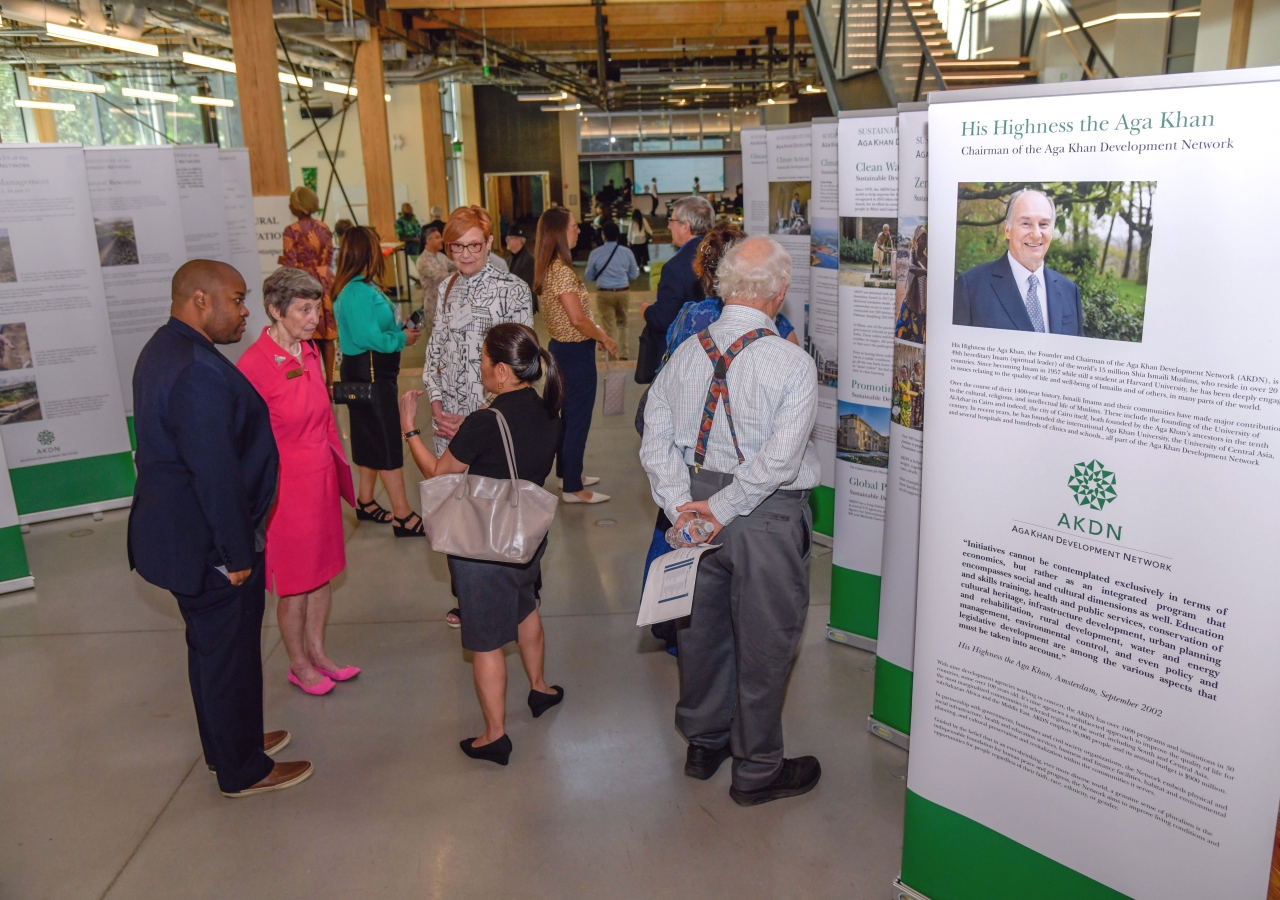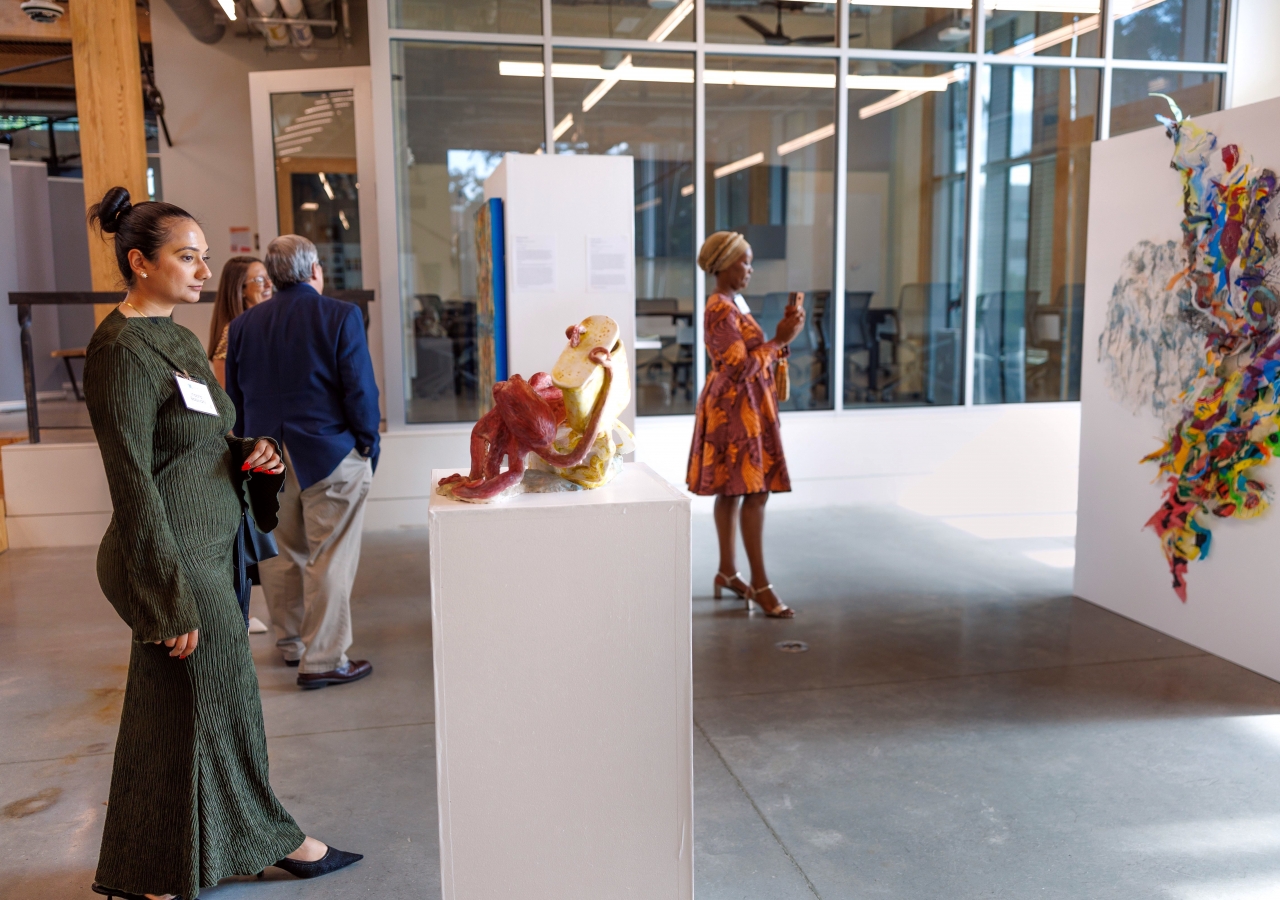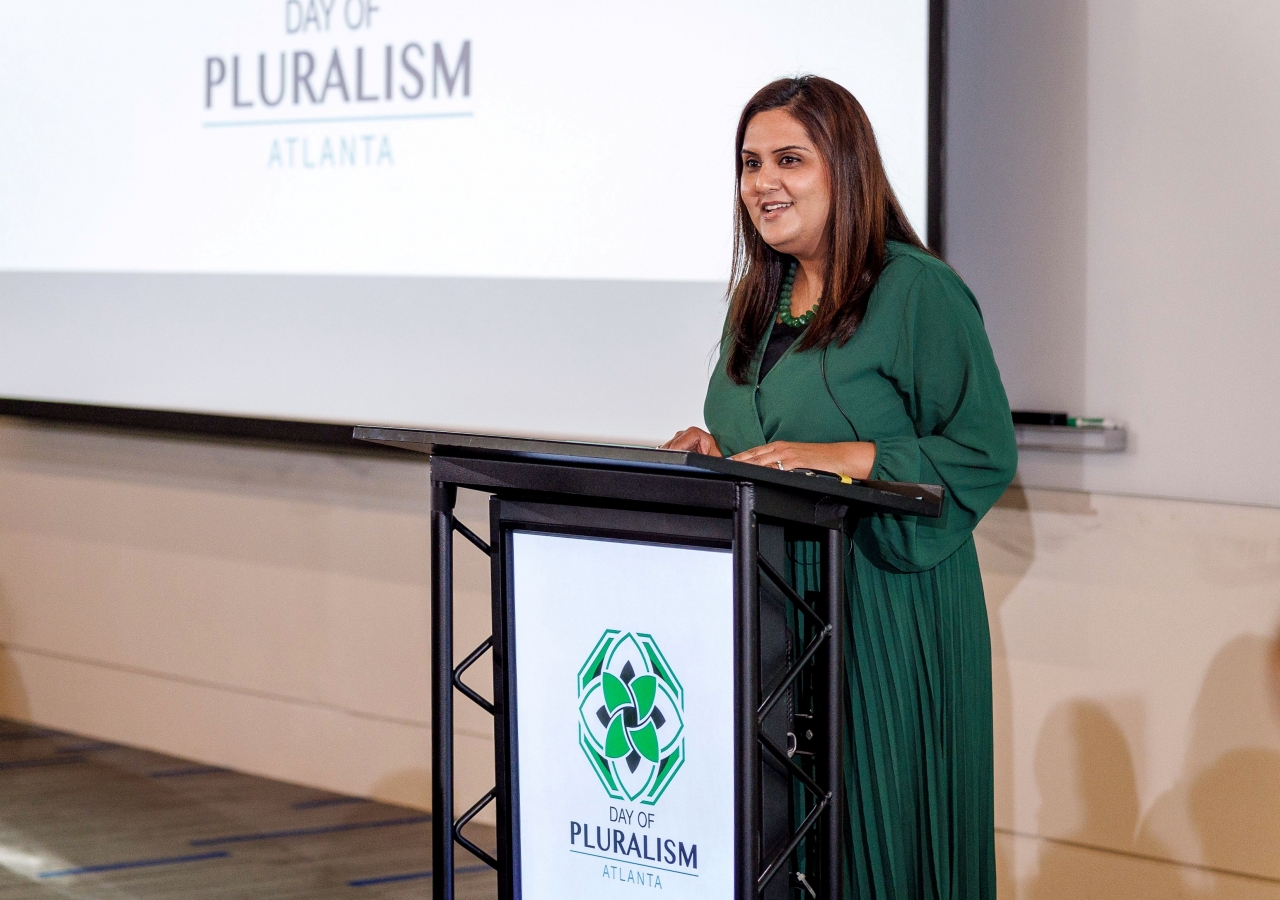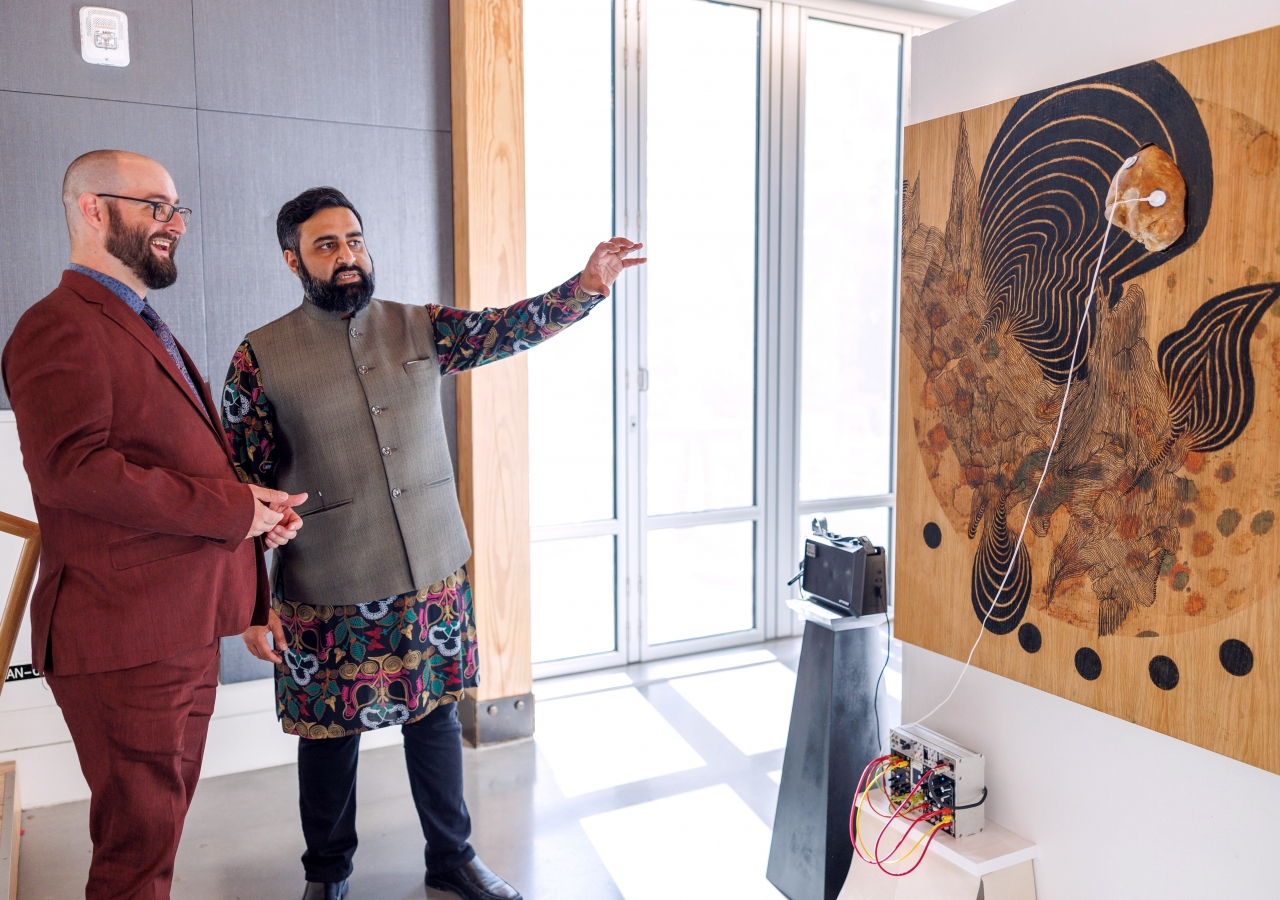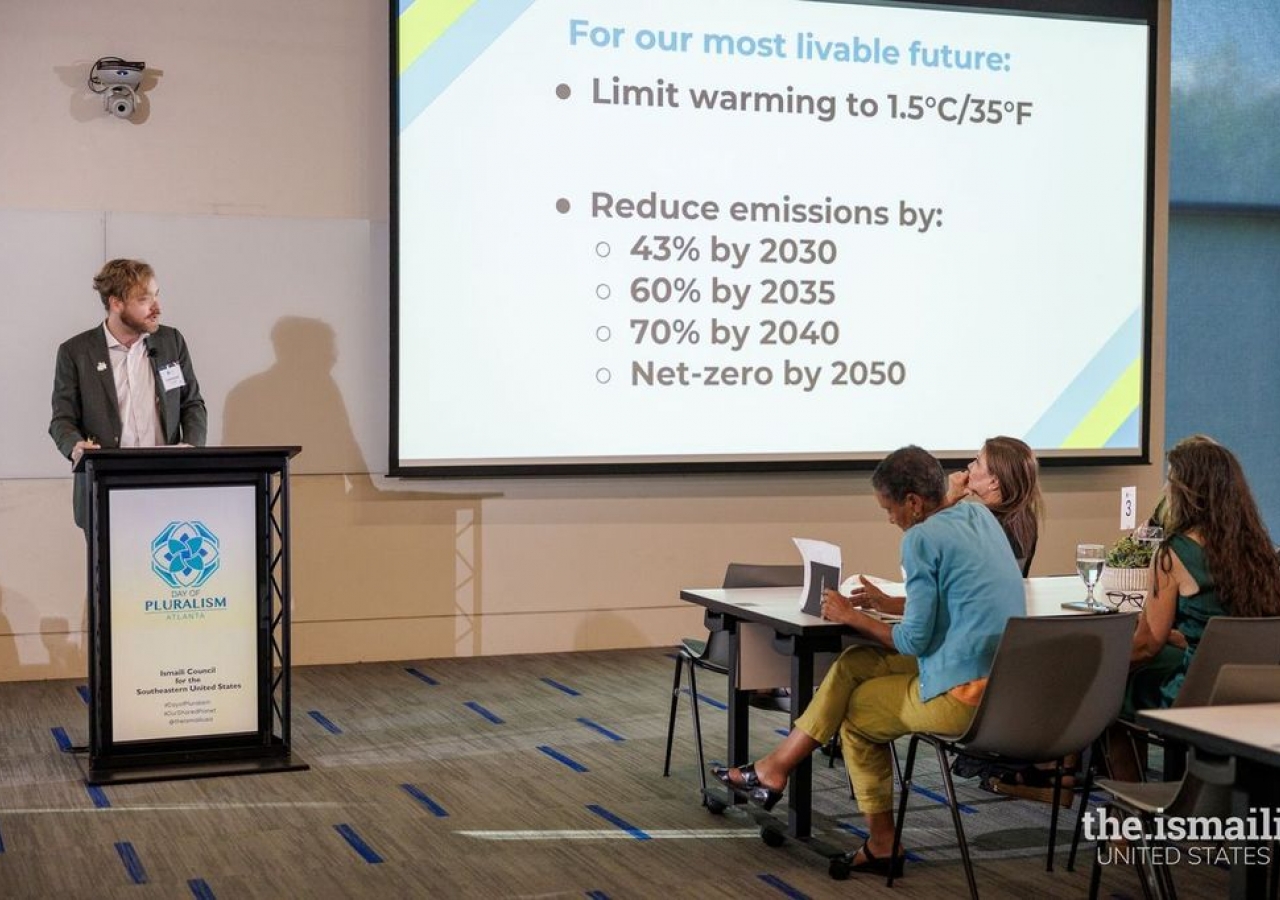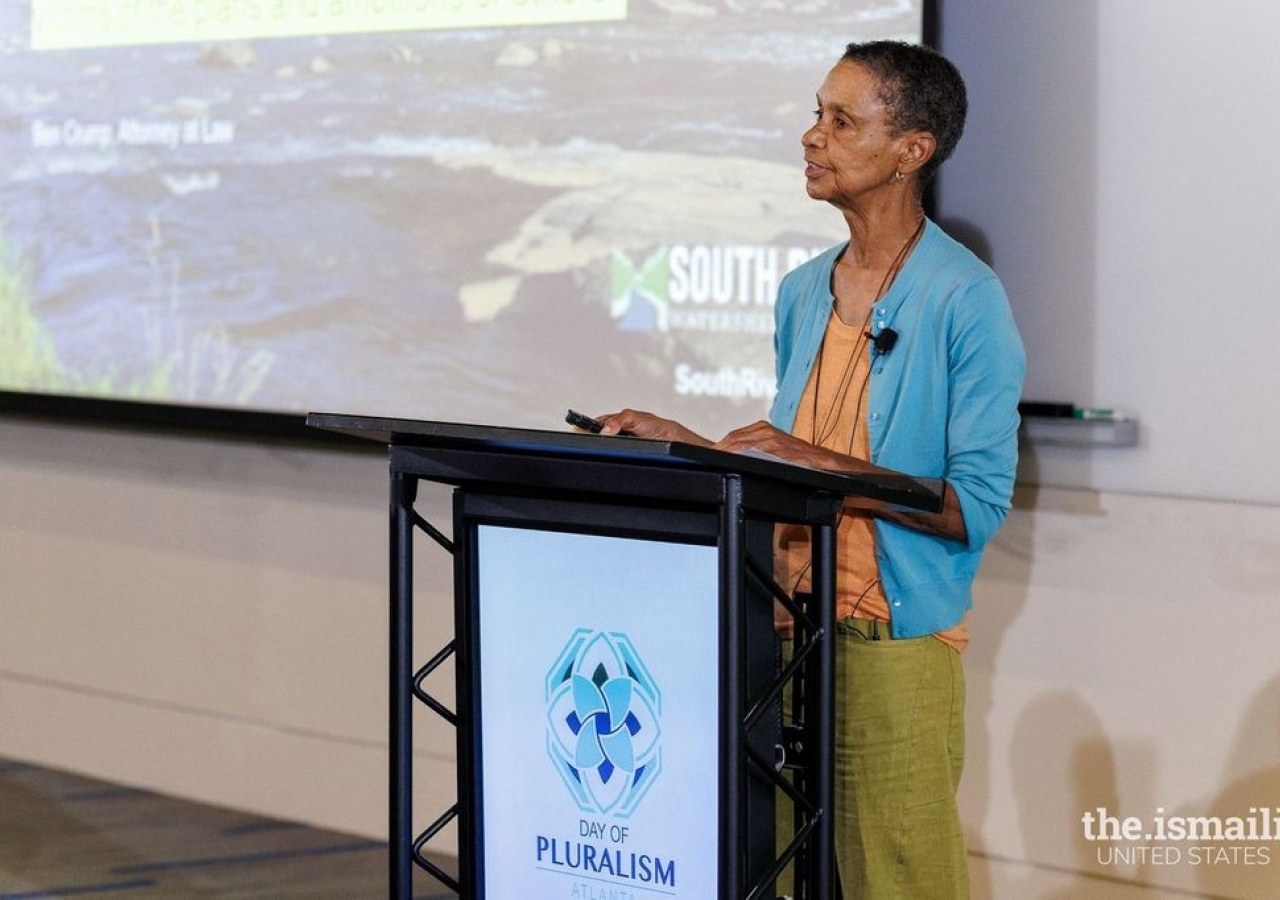“Responsible stewardship of the environment, ensuring that the Earth can sustainably support future generations.” From the Aga Khan Development Network’s Environment and Climate Commitment Statement. March 2, 2022.
Mawlana Hazar Imam has always emphasized the importance of pluralism in our lives and as an expression of our citizenship in the countries where we live. "Pluralism does not mean the elimination of difference,but the embrace of difference,” he says, and “Genuine pluralism understands that diversity does not weaken a society; it strengthens it." As Ismailis, then, we must ask ourselves, how can we mobilize our differences to make us stronger?
Recently, the Southeast Ismaili Council, alongside a host committee of civic leaders from Atlanta, hosted the second Day of Pluralism. The event, held on June 20 under the theme, "One Earth, Our Shared Planet," took to heart these questions while exploring the intersections of pluralism, environmental sustainability, and faith.
Rozina Merchant, President of the Ismaili Council for the Southeastern United States, welcomed the guests and remarked, “ Pluralism does not mean homogenization…To the contrary, pluralism respects the role of individual identity in building a richer world.”
The event’s co-curator, Dr. Nadya Merchant, summarized the goal of the event as “both an incubator for collaboration and an inspiration to create tidal waves of change for ourselves and in our communities, workplaces, places of worship, and neighborhoods.” The evening of speakers, poetry, singing, and visual arts aimed to deepen the understanding of our role in environmental sustainability through our shared values as diverse communities.
How Pluralism and Environmental Sustainability Intersect
The venue for the evening, The Kendeda Building on the Georgia Tech campus, perfectly embodied the event's spirit as the first building in Georgia, and 28th in the world, to earn the Living Building Challenge certification – the world’s most ambitious and holistic green building achievement. The achievement of this certification is a result of its efforts to foster regenerative and restorative relationships amongst humans and nature, where people give back more to the environment than they take.
Guests for the evening experienced an array of artistic works curated by Ashley Woods and Heather Bird Harris on the theme of natural relationships and affect. Entitled, “Natural Observations: Affect & Consequences,” the 14 works of art displayed investigated how multiple bodies affect each other, such as plastic and earth, rocks and sound, soil and water, humans and our living relatives. Followed by engaging talks, artistic expressions, music and storytelling, the event also allowed attendees to explore unique perspectives on environmental sustainability.
Codi Norred, a host committee member and Executive Director of Georgia Interfaith Power & Light, shared his insights on the connections between faith, pluralism, and environmentalism, stating, "All of our traditions and cultures root us in our place and compel us to care for each other, our community, and the planet."
How do the concepts of pluralism intersect with environmental sustainability in our lives, particularly in the Southeast? Featured speaker Dr. Jacqueline Echols, Board President of the South River Watershed Alliance, highlighted the links between valuing pluralism and caring for the environment. She presented the disparities experienced by African American neighborhoods in decisions made by the Environmental Protection Agency and the local governments in response to pollution in Atlanta's South River.
For African American neighborhoods, clean-up efforts have been slow and lack accountability compared to white neighborhoods. Dr. Echols emphasized that combating these injustices requires us to speak out against racism and discrimination — values that oppose pluralism and equality. She stated that pluralism not only needs to celebrate our differences, it requires us to work together and leverage our voices in the defense of justice.
Over an environmentally-conscious dinner of plant-based, local, responsibly grown food, the evening underscored the importance of paying attention to environmental issues and their impacts on future generations through actions in our daily lives, including the foods that we choose to consume. Plant-based diets produce 75% less heat-trapping gas, generate 75% less water pollution, and use 75% less land than meat-rich diets, contributing to environmental sustainability.
During dinner, attendees were guided through small group discussions organized by Inclusivv, a local organization specializing in creating spaces of dialogue, that delved deeper into the topics of pluralism and the environment. The conversations served as a starting point for thoughtful, action-oriented discussions to advance our community’s understanding of environmental challenges within Greater Atlanta.
Continue the Conversation with Family and Friends
Design a dinner menu guided by the principles of healthy, sustainable menus, such as sourcing locally grown produce, and/or minimally processed ingredients. This conversation guide from Inclusivv will help you design your dinner conversation around similar themes discussed by attendees at the Day of Pluralism. We hope these tools will help you explore how pluralism can strengthen our commitment to environmental stewardship and equity, bringing together some of the key values of Islam.

